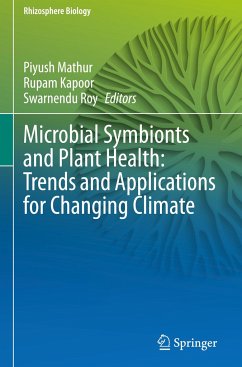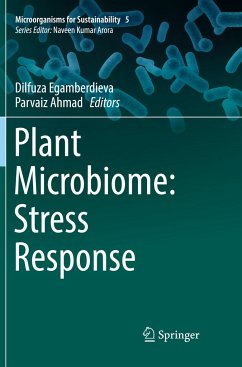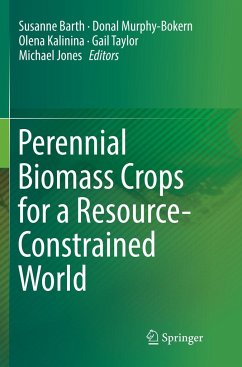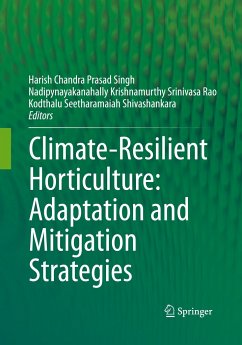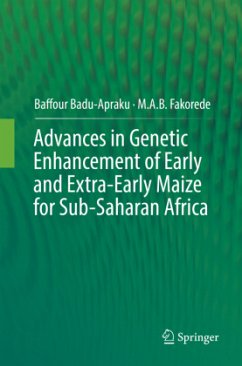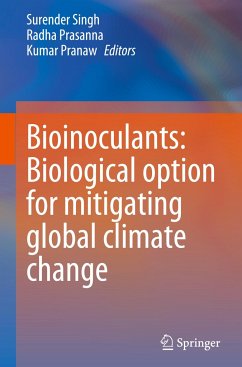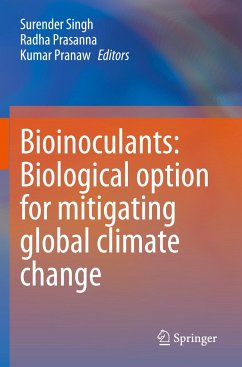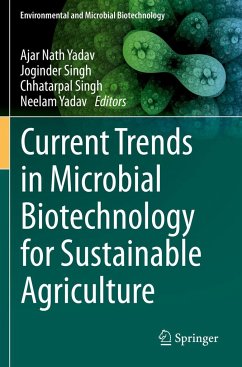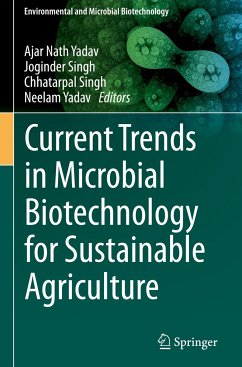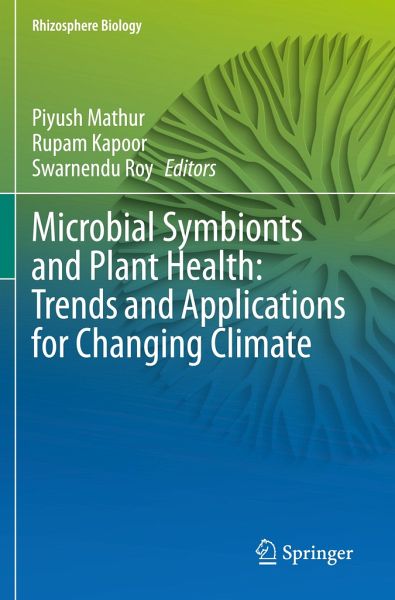
Microbial Symbionts and Plant Health: Trends and Applications for Changing Climate
Versandkostenfrei!
Versandfertig in 6-10 Tagen
152,99 €
inkl. MwSt.

PAYBACK Punkte
76 °P sammeln!
This book provides a comprehensive understanding of the complex relationship between microbial symbionts and plants in the era of climate change. It focuses on the plant microbiome associated with different plant organs like roots, leaves, stems, fruit, and seeds, and showcases their significant role in the enhancement of crop yield and protection in a sustainable manner. Concomitantly, acumens to the most emerging trends in plant microbial research that includes rhizosphere engineering and metagenomics are also covered in this title. The association of microbial symbionts with the host offers...
This book provides a comprehensive understanding of the complex relationship between microbial symbionts and plants in the era of climate change. It focuses on the plant microbiome associated with different plant organs like roots, leaves, stems, fruit, and seeds, and showcases their significant role in the enhancement of crop yield and protection in a sustainable manner. Concomitantly, acumens to the most emerging trends in plant microbial research that includes rhizosphere engineering and metagenomics are also covered in this title. The association of microbial symbionts with the host offers a wide advantage in terms of acclimatization to varied environmental conditions. A large number of microbes such as cyanobacteria, PGPR, endophytes, and AMF have been shown to improve plant growth and production under the effect of various abiotic and biotic stresses. These microbial symbionts secrete several secondary metabolites, signaling molecules, and hydrolytic enzymes that play a multifarious role in improving plant growth and yield. Moreover, the symbionts have been known to regulate the host responses at the molecular level. Bioprospecting these microbial symbionts will provide an alternative to the chemical-based fertilizers and pave the path for the development of biofertilizers. The book is a suitable reading material for undergraduate and postgraduate students, researchers, and scientists working in the field of agricultural biotechnology, microbiology, mycology and plant pathology, and allied fields of plant and microbial sciences. The book in this context attempts to provide an integrative and exhaustive study as well as research material that would help the scientific community in wide respect.



